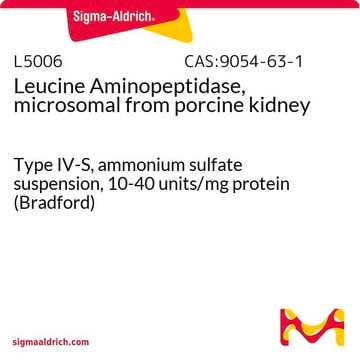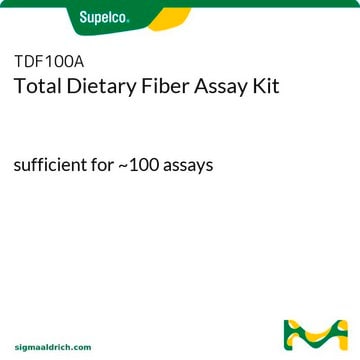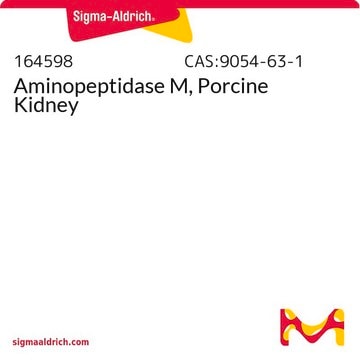75554
Aminopeptidase Test Strips
suitable for agriculture, clinical testing, environmental, food and beverages, pharmaceutical, microbiology and specific enzyme detection
About This Item
Recommended Products
product name
Aminopeptidase Test, suitable for microbiology
product line
BioChemika
shelf life
limited shelf life, expiry date on the label
technique(s)
microbe id | specific enzyme detection: suitable
antibiotic activity spectrum
Gram-negative bacteria
application(s)
agriculture
clinical testing
environmental
food and beverages
pharmaceutical
microbiology
storage temp.
2-8°C
suitability
bacteria
Related Categories
General description
Application
L-Alanine aminopeptidase is an enzyme localized in the bacterial cell wall which cleaves N-terminal L-alanine from various peptides. It is found almost exclusively in Gram-negative microorganisms. Studied Gram-positive or Gram-variable microorganisms show no or very weak activity. The aminopeptidase test is a reliable method for determining the Gram behavior. It does not replace Gram-staining, as it cannot show morphology.
Components
Storage Class Code
11 - Combustible Solids
WGK
WGK 3
Flash Point(F)
Not applicable
Flash Point(C)
Not applicable
Personal Protective Equipment
Choose from one of the most recent versions:
Already Own This Product?
Find documentation for the products that you have recently purchased in the Document Library.
Customers Also Viewed
Articles
There are many other methods of detection to indicate the presence of E. coli. Review common tests and biochemical reactions for this contaminant.
Clostridia are relatively large, gram-positive, rod-shaped bacteria that can undergo only anaerobic metabolism.
For microbiologists the most fundamental stain was developed in 1884 by the Danish bacteriologist Hans Christian Gram.
Clostridium perfringens can cause contamination in undercooked or improperly sterilized canned foods and water. Learn to detect, identify, and differentiate this pathogen.
Our team of scientists has experience in all areas of research including Life Science, Material Science, Chemical Synthesis, Chromatography, Analytical and many others.
Contact Technical Service






